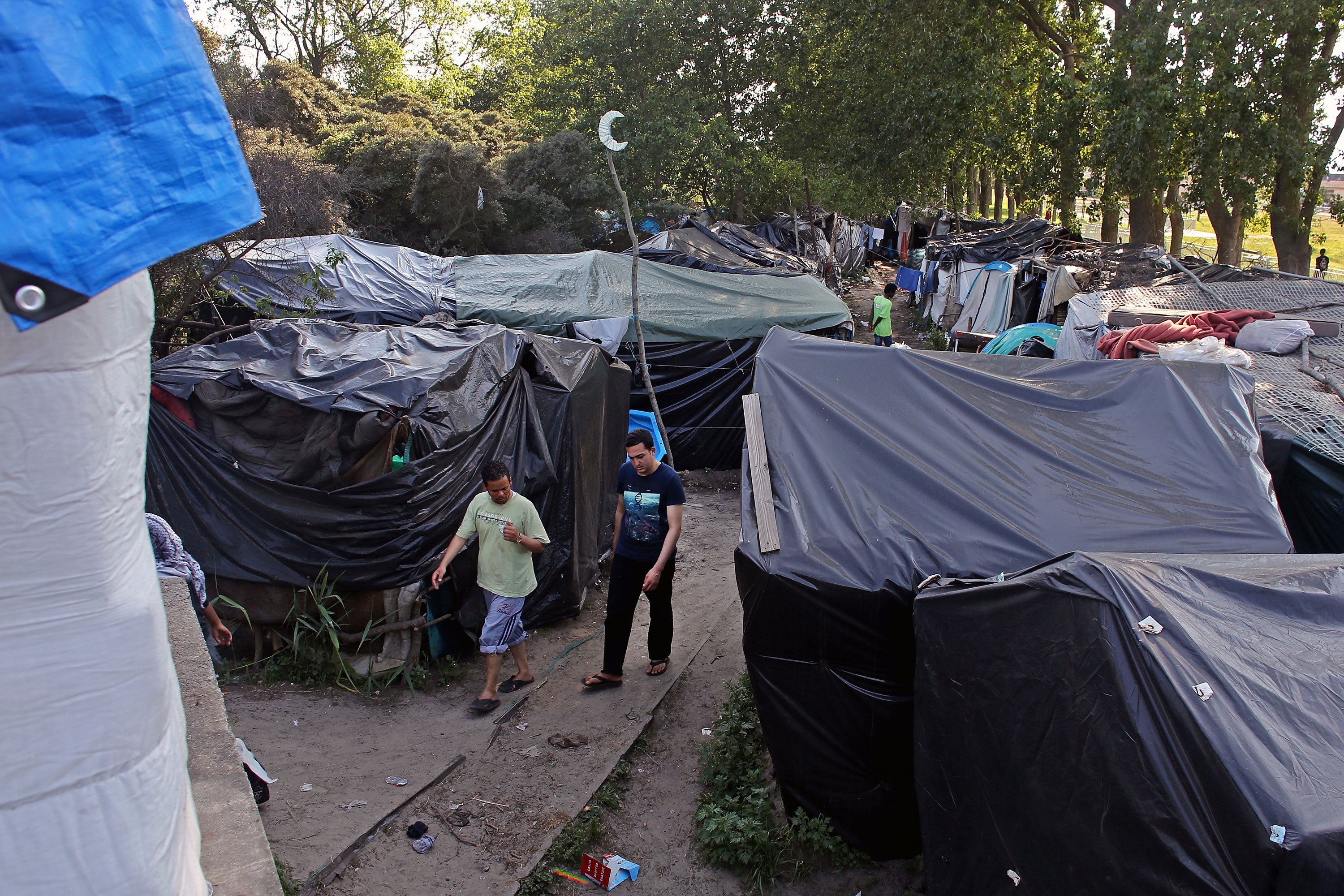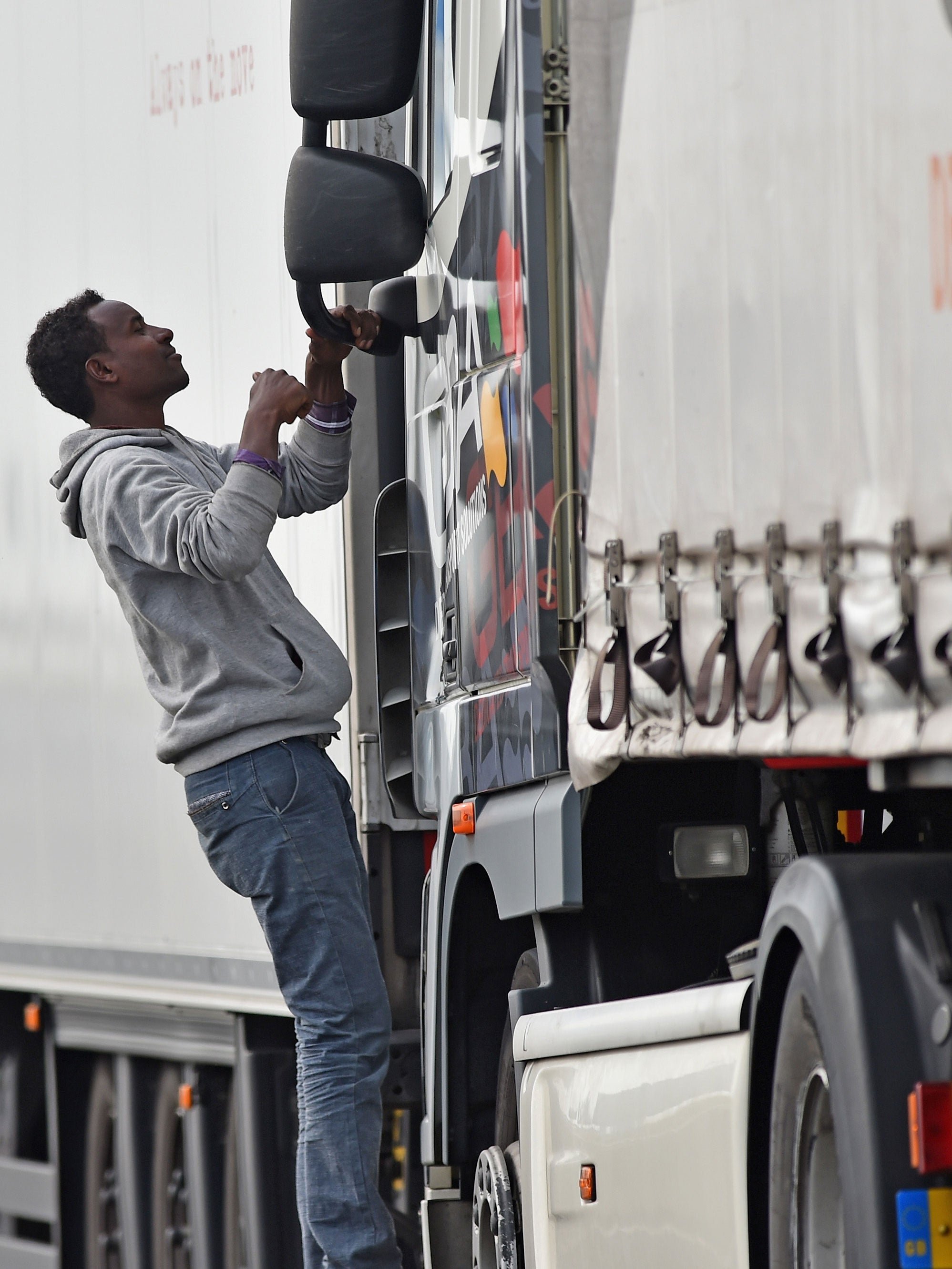Desperate migrants try to swim from Calais to Britain
An unknown number of migrants have made the desperate choice to swim across the English Channel

Your support helps us to tell the story
From reproductive rights to climate change to Big Tech, The Independent is on the ground when the story is developing. Whether it's investigating the financials of Elon Musk's pro-Trump PAC or producing our latest documentary, 'The A Word', which shines a light on the American women fighting for reproductive rights, we know how important it is to parse out the facts from the messaging.
At such a critical moment in US history, we need reporters on the ground. Your donation allows us to keep sending journalists to speak to both sides of the story.
The Independent is trusted by Americans across the entire political spectrum. And unlike many other quality news outlets, we choose not to lock Americans out of our reporting and analysis with paywalls. We believe quality journalism should be available to everyone, paid for by those who can afford it.
Your support makes all the difference.Desperate migrants are now attempting to swim across the English Channel to get from the French port of Calais to England.
An unknown number of migrants have made the desperate choice to swim to England from the French coast, according to the BBC.
Some migrants allegedly try to stagger the journey by intermittently using small dinghies or yachts.
However others attempt to swim the whole channel, which is one of the busiest shipping lanes in the world.
The revelation that migrants were resorting to this desperate tactic was discovered after months of research by Norway’s Dagbladet newspaper, who reported the identities of two men who had tried to make the journey in this way.
Using Radio-Frequency and DNA testing, Scandinavian police were able to identify human remains found in two wetsuits, one found on the island of Texel in the Netherlands in October 2014 and the other on the coast of Lista in southern Norway in January 2015, which had been bought at a Decathalon sports shop in Calais in October 2014.
The divers were identified as Mouaz Al Balkhi, 22, from Damascus, Syria who after fleeing to Jordan with his mother father and four sisters was attempting to travel to England where his uncle lives in Bradford, Yorkshire, his sister Rahaf al-Balkhi told the BBC.
On the same day that the swimming equipment was purchased, Mr Al Balkhi had texted his uncle, Badi to tell him that he had arrived in Calais and could see England, adding that he might try to swim the Channel.
His uncle replied: “You must not try to swim. That wouldn’t work. Hide in a lorry.”
Tragically it appears that Mouaz, an electrical engineering student, decided not to heed his relative’s advice.
The other man, Shadi Omar Kataf, 28, also from Damascus had fled a refugee camp in Syria controlled by Islamic State militants with his sister.
Before embarking on the journey from Calais Kataf told his cousin Ziad Qataf, “I don’t have enough money to use the people smugglers so I’m going to buy a wetsuit and swim to England”, according to the Dagbladet.
Calais, which has a population of 70,000, is located at the narrowest point of the English Channel, where the distance between France and England is just 34 kilometres.
The outer edge of the port town also houses France’s “first official, state sanctioned migrant slum”, as reported in the Guardian – an open air shanty town colloquially known as “the new jungle”, which is home to around 2,000 migrants from across the world.

Earlier this month the head of the Road Haulage Association warned that the migrant crisis in Calais was beginning to reach a “tipping point” saying that migrants desiring to make the crossing between France and the UK had led to a “desperate situation” for both those searching for a better life and for truck drivers concerned about making a journey safely across the Channel.
BBC Radio Kent revealed that 563 illegal immigrants were detained or arrested by Port of Dover police officers in 2014, up from 148 the previous year. While at least 15 refugees died last year, including a 16-year-old girl according to the Dagbladet.
Join our commenting forum
Join thought-provoking conversations, follow other Independent readers and see their replies
Comments